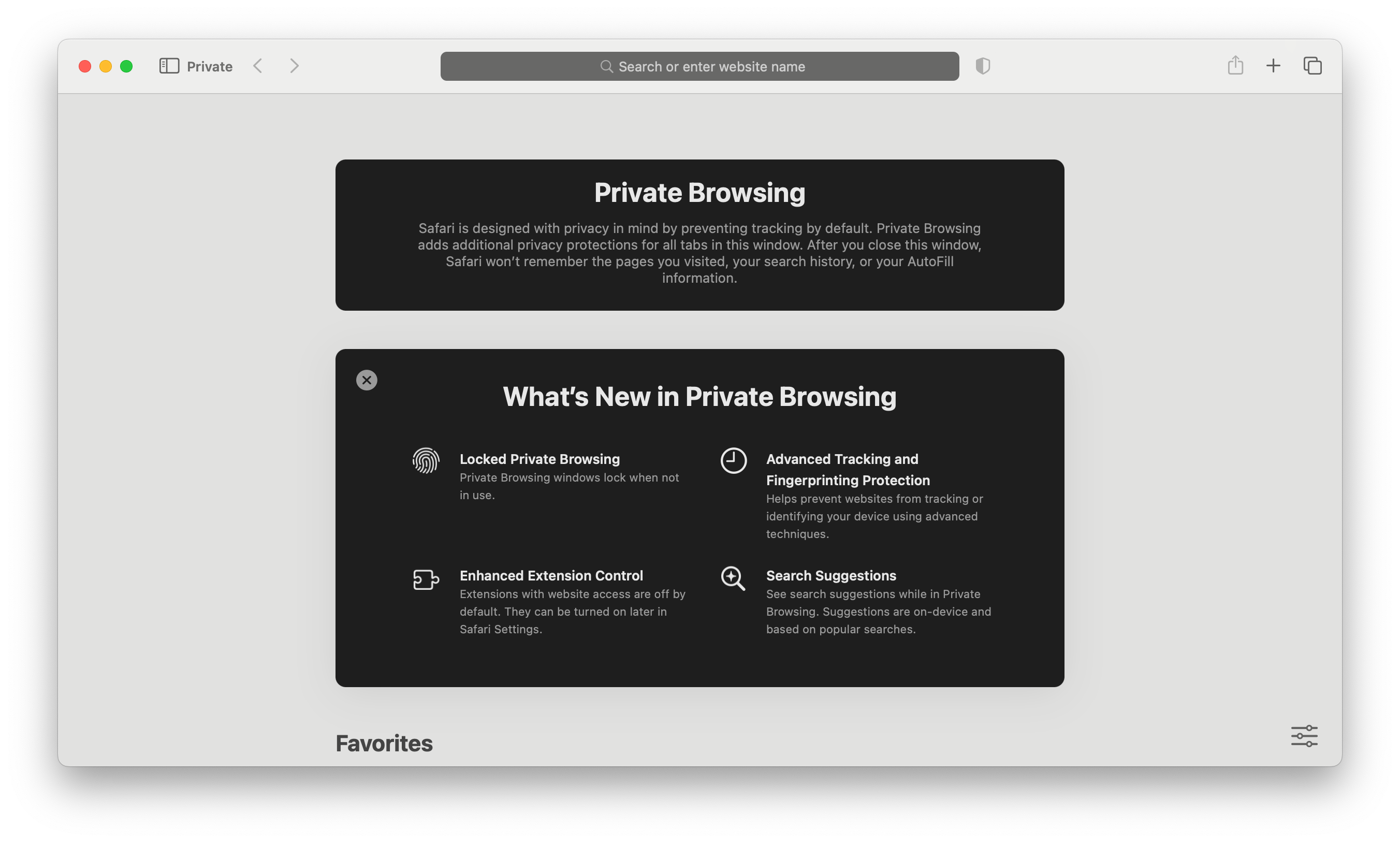Get the latest tech news
Private Browsing 2.0
When we invented Private Browsing back in 2005, our aim was to provide users with an easy way to keep their browsing private from anyone who shared the same device.
The goal of these protections is to make it more difficult for third-party scripts running on the destination site to correlate user activity across websites by reading the URL. In Private Browsing, Safari now displays a warning requesting that the user consents to revealing their IP address to the server before loading the page. To make it more difficult to reliably extract details about the user’s configuration, Safari injects noise into various APIs: namely, during 2D canvas and WebGL readback, and when reading AudioBuffer samples using WebAudio.
Or read this on r/technology